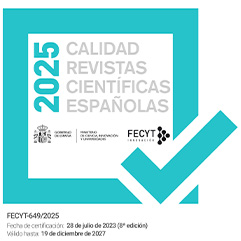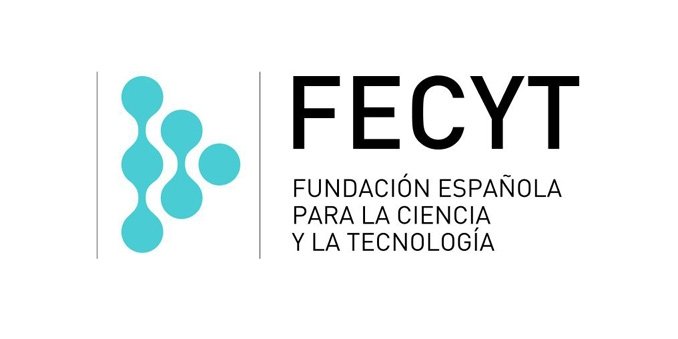Web security in online tourism distribution of rural destinations: the case of Extremadura
The case of Extremadura
DOI:
https://doi.org/10.17561/ree.n2.2023.7765Keywords:
Travel Agencies, Distribution, Digitalisation, Tourism Marketing, Web SecurityAbstract
Digitalisation is a tool for the development of tourism destinations and products. This trend has gained relevance in recent years due to new marketing and distribution processes. Consumers are an increasingly demanding and autonomous market that seeks information, speed and online availability throughout the decision-making process and enjoyment of the trip. Beside, businesses and destinations are committed to strategic lines of online marketing with the aim of expanding the target market, automating processes and streamlining and facilitating the purchase. Moreover, Covid-19 has necessarily accelerated this digitalisation process and users are increasingly using online platforms for their trips. Within this commercial process of digitalisation, tourism service providers must focus on security in order to guarantee a good and quality service. Through a case study and a cluster analysis of travel agencies in Extremadura, as a rural destination, an approach to the web security of the main travel agencies, management groups and commercial groups is carried out. The main objective is to evaluate the real capacity of rural destination marketing through online platforms taking into account web security for users. The results show a tendency to centralise web management in management groups or online management entities to ensure privacy in the purchasing process.
Downloads
References
Alabduljabbar, A., Ma, R., Choi, S., Jang, R., Chen, S., & Mohaisen, D. (2022). Understanding the Security of Free Content Websites by Analyzing their SSL Certificates. En Proceedings of the 1st Workshop on Cybersecurity and Social Sciences (CySSS ’22), 2022, Nagasaki, Japan. Association for Computing Machinery. https://doi.org/10.1145/3494108.3522769
Álvarez, I., & Biurrun, A. (2022). La digitalización como baza de recuperación pospandemia. ICE. Revista de Economía, 924, 197,213. https://doi.org/10.32796/ice.2022.924.7357
Berné Manero, C., García González, M., García Uceda, M. E., & Múgica Grijalba, J. M. (2011). La influencia de las TIC en la estructura del sistema de distribución turístico. Cuadernos de Turismo, 28, 9–22.
Brandão, M. M., Sincorá, L. A., & Sarcinelli, A. F. (2021). Perceived value of the online environment of tourism agencies and its impacts on the purchase decision: the mediating role of attitude. Revista Brasileira de Pesquisa Em Turismo, 15(2).
Buhalis, D., & Licata, M. C. (2002). The future eTourism intermediaries. Tourism Management, 23(3), 207–220. https://doi.org/10.1016/S0261-5177(01)00085-1
Casado-Aranda, L. A., Dimoka, A., & Sánchez-Fernández, J. (2019). Consumer Processing of Online Trust Signals: A Neuroimaging Study. Journal of Interactive Marketing, 47, 159–180. https://doi.org/10.1016/j.intmar.2019.02.006
Davis, F. D. (1989). Perceived usefulness, perceived ease of use, and user acceptance of information technology. MIS Quarterly: Management Information Systems, 13(3), 319–339. https://doi.org/10.2307/249008
Díaz Luque, P., & López Catalán, B. (2012). La promoción turística oficial en Internet y su relación con el desarrollo turístico de los destinos: Una aplicación a las Ciudades medias de Andalucía. Revista de Estudios Regionales, 93, 93–115.
EURONA. (2021). Cómo la España vaciada llena su tiempo en Internet. https://www.eurona.es/sobre_nosotros/wp-content/uploads/2021/11/Presentacion-Ejecutiva_Informe-consumo-Internet-Rural-Eurona.pdf
Fernández, A. G. B., Madueño, J. H., Jorge, M. L., Gardey, G. S., & Llorens, A. S. (2009). Análisis empírico de la influencia de la propiedad familiar sobre la orientación estratégica de las pequeñas y medianas empresas. Investigaciones europeas de dirección y economía de la empresa, 15(1), 45–59.
Hermawan, D. (2022). The effects of web quality, perceived benefits, security and data privacy on behavioral intention and e-WOM of online travel agencies. International Journal of Data and Network Science, 6(3), 1005–1012. https://doi.org/10.5267/j.ijdns.2022.1.011
Hernández Mogollón, J. M. (2008). Turismo cultural y de naturaleza: estrategias de creación de valor en Extremadura. Puertas a La Lectura, 20–21, 213–234.
Instituto Nacional de Estadística. (2022). Cifras oficiales de población de los municipios españoles: Revisión del Padrón Municipal. Resultados. Padrón. Población Por Municipios. https://www.ine.es/dyngs/INEbase/es/operacion.htm?c=Estadistica_C&cid=1254736177011&menu=resultados&idp=1254734710990
Instituto Nacional de Estadística. (2020). El salto al comercio electrónico. CifrasINE. https://www.ine.es/ss/Satellite?L=es_ES&c=INECifrasINE_C&cid=1259952923622&p=1254735116567&pagename=ProductosYServicios%2FINECifrasINE_C%2FPYSDetalleCifrasINE
Junta de Extremadura. (2021). II Plan turístico de Extremadura 2021-2023.
Karimov, F. P., Brengman, M., & van Hove, L. (2011). The effect of website design dimensions on initial trust: A synthesis of the empirical literature. Journal of Electronic Commerce Research, 12(4), 272–301.
Meta. (2022). Page shops on Facebook. Meta Business Help Centre. https://www.facebook.com/business/help/823968777984746?id=939256796236247
Moreno-Lobato, A., Di-Clemente, E., & Hernández-Mogollón, J. M. (2021a). El sector de la intermediación como elemento clave en la creación de valor en un destino turístico: El caso de Extremadura. Journal of Tourism and Heritage Research, 4(1), 98–110.
Moreno-Lobato, A., Sánchez-Vargas, E., Di-Clemente, E., & Hernández-Mogollón, J. M. (2021b). Comercialización de experiencias turísticas en destinos de naturaleza y cultura a través de canales electrónicos. TURYDES. Turismo y Desarrollo Local Sostenible, 14(1), 1–17.
OECD. (2020). E-commerce in the times of COVID-19. En OECD Policy Responses to Coronavirus (COVID-19).
Ortega Martorell, S., & Canino Gutiérrez, L. (2006). Protocolo de seguridad SSL. Ingeniería Industrial, 27 (2–3), 57–62.
Rodríguez, C., Rodríguez, M. M., Martínez, V. A., & Juanatey, O. (2015). La intermediación turística en España y su vinculación con el Marketing de Afiliación: una aproximación a la realidad de las Agencias de Viajes. PASOS Revista de Turismo y Patrimonio Cultural, 13(4), 805–827. https://doi.org/10.25145/j.pasos.2015.13.056
Published
Issue
Section
License
Copyright (c) 2023 Ana Moreno Lobato, Bárbara-Sofía Pasaco-Gonzalez, Elena Sánchez-Vargas, José-Manuel Hernández-Mogollón

This work is licensed under a Creative Commons Attribution 4.0 International License.
- Authors maintain the copyright, but they guarantee the journal its right for publication, that is under Creative Commons Licence, permitting others share the work, whereas clearly indicating the author and the first publication of the journal.
- Authors could adopt non-exclusive licence agreements for delivering the published version, whereas clearly indicating the first publishing in Revista de Estudios Empresariales. Second Era.
- Authors are encouraged to spread their works through Internet before and during the sending process, in order to make interesting scientific discussions that could increase the cites of the published work (Open Citation Project).
Revista de Estudios Empresariales. Second Era, uses PKP Preservation Network (PN).




























